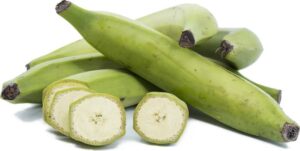African star apple is a delicious fruit that is native to Africa.
The fruit contains loads of vitamins, minerals, fiber, and antioxidants. It is ideal for persons with diabetes, high blood pressure, and obesity.
When ripe, the fruit peel is golden orange or yellow and the pulp within the peel is orange.
The name African star apple is taken from the central arrangement of the seeds inside the fruit pulp. It contains five to six seeds shaped in the form of a star.
Scientifically it is called Chrysophyllum albidum (Family: Sapotaceae) and locally: African cherry, star apple, udara or update (Igbo), agbalumo (Yoruba), agwaluma (Hausa), agonzugwe (Benin), and alasa (Ghana).
However, star apple is a seasonal fruit and is only available from December to March.
Health benefits of African star apple (Udara)
Star apple is an excellent source of vitamins and minerals. Its health benefits include:
1. It is highly nutritious
100 grams of star apple provides more than 100% of the recommended dietary allowances (RDA) of vitamin C from a 2000 calorie diet.
It will provide you with about ten times more vitamin C than cashew and guava.
The number of nutrients found in 100 grams of African star apples are as follows [1];
- Energy (Kcal): 119 kcal
- Protein: 4 grams (g)
- Fiber: 4 g
- Potassium: 34% of Required dietary allowances (RDA)
- Calcium: 39% of RDA
- Phosphorus: 25 % of RDA
- Iron: 13 % of RDA
- Magnesium: 43% of RDA
- Zinc: 56% of RDA
- Niacin: 9.4% of RDA
- Riboflavin: 51% of RDA
- β-carotene (Vitamin A): 5.7% of RDA
- Ascorbic acid (Vitamin C): 141% of RDA
It is also rich in manganese and copper – minerals required for the proper function of your immune system.
Note: The required dietary allowance is the number of nutrients your body needs from a daily 2000-calorie diet.
2. African star apples are diabetes-friendly
The high fiber content of African star apple makes it a diabetes-friendly fruit.
Research has shown that foods with high fiber content reduce fasting blood sugar levels and ensures better glycemic control in people with type 2 diabetes. [2]
3. Helps protect heart health

Star apple is particularly low in sodium but high in potassium and calcium. This makes it an ideal fruit for people with high blood pressure who need to reduce their salt intake.
Additionally, fruits high in dietary fiber help lower the risk of hypertension, stroke, cancer, diabetes, and other metabolic disorders. [3]
4. May promote weight loss
African star apple (udara) is particularly low in carbohydrates and sugar making it an ideal fruit for anyone trying to lose weight. [4]
Its high fiber content also helps to promote a feeling of fullness and satiety – helping you to stay full for longer periods.
Related: 50 African foods to help you lose weight and keep it off
5. Rich in antioxidants
Antioxidants are substances that help fight compounds that cause cell damage.
The fruit pulp of star apple is high in polyphenols, ascorbic acid, β-carotene, and α-Tocopherol (Vitamin E) – coupled with dietary fiber, they have been found to prevent metabolic disorders like cancer, diabetes, obesity, coronary heart disease, etc. [3]
6. Good for pregnant women
African star apple is rich in calcium, phosphorus, and potassium – minerals needed for electrolyte balance and development of strong bones and teeth in the unborn baby. [5]
Due to its high ascorbic acid content, the unripe fruit has a strong sour-sweet taste that helps reduce excessive salivation and nausea in pregnant women.
Related:10 healthy foods that will help you Conceive Twins
7. Helps prevent cold and cough
The high vitamin C and zinc content of star apple may help strengthen your immune system.
And prevent respiratory tract infections, like catarrh and cough.
Related: 15 best Natural Remedies for Toddler Cold and Cough
8. Protects digestive health
The high dietary fiber content of star apple fruits helps to prevent constipation in the elderly and pregnant women.
It also protects gut health and prevents colon disease.
Related:15 amazing African Foods high in Dietary Fiber
Recipes and uses of African star apple

The following are ways to eat and use star apple:
- Snack: In West Africa, there is a saying that eating a star apple every day keeps the doctor away. To eat, simply peel off the skin, remove the seeds and enjoy the fruit pulp. It is ideal for everyone.
- Jam and jellies: Due to the high content of pectin in the fruit pulp. The pulp is used in making delicious jam and jelly treats.
- Tea: The leaves of African star apples are brewed into tea by the locals and used in treating diarrhea and stomach ache.
- Cocktail drink: To prepare a drink, simply combine the skin, pulp, sugar, and vanilla extract. Boil, strain, and allow to chill. You can add alcohol or additional flavors like saffron and cardamom.
Uses of other plant parts in folk medicine.
Studies have shown that the roots, seeds, leaves, and bark of the African star apple contains phytochemicals that are responsible for its anti-inflammatory, anti-diarrhea, and antimalarial activities [6]. The uses are as follows:
- Wound treatment: The roots, barks, and leaves of the African star apple are applied topically to treat sprains, bruises, and wounds in southern Nigeria.
- Bleeding: The seeds and roots extracts of star apple arrest bleeding and prevent wound infection.
- Malaria: The bark is traditionally used to treat yellow fever and malaria.
- Anacardic acid: The fruit contains about 90% anacardic acid. This acid is commonly found in cashews. It can be used industrially to protect wood from insect attack.
- Jewelry: The shiny seeds are usually bound together with a rope to make jewelry for local community dances and other events.
Possible side effects?
Eating a star apple is unlikely to trigger serious side effects in most people.
Nonetheless, it is important to always remove all the seeds before eating to avoid choking in young children and older adults.
Additionally, the acidic content of African star apples may contribute to a buildup of plaque.
People should therefore rinse their mouth with water or brush their teeth after eating a star apple.
The bottom line
African star apples are incredibly healthful for you, and eating them is linked to a lower risk of many major diseases, including diabetes and cancer.
What’s more, its high fiber content may promote weight loss and prevent colon disease.
- Oladejo T. & Adeniji Paulina. (2012) Nutrient composition and micronutrient potential of three wildly grown varieties of African star apple (Chrysophyllum albidum). African Journal of Food Science. DOI: 10.5897/AJFS12.045
- Silva, F. et al. (2013). Fiber intake and glycemic control in patients with type 2 diabetes mellitus: a systematic review with meta-analysis of randomized controlled trials. Nutrition reviews, 71(12), 790–801. https://doi.org/10.1111/nure.12076
- Dhingra D.et al. Dietary fiber in foods: a review. J Food Sci Technol. 2012;49(3):255-266. doi:10.1007/s13197-011-0365-5
- Slavin JL. Dietary fiber and body weight. Nutrition. 2005;21(3):411-418. doi:10.1016/j.nut.2004.08.018
- Palacios C. The role of nutrients in bone health, from A to Z. Crit Rev Food Sci Nutr. 2006;46(8):621-8. DOI: 10.1080/10408390500466174. PMID: 17092827.
- Emudainohwo, J. et al. (2015). A Comprehensive Review on Ethno-Medicine, Phytochemistry, and Ethnopharmacology of Chrysophyllum albidum. Journal of Advances in Medical and Pharmaceutical Sciences. 3. 147-154. 10.9734/JAMPS/2015/18641.
Don't Miss Any Wellness Tips!
Get new free and exclusive health tips delivered straight to your inbox!



